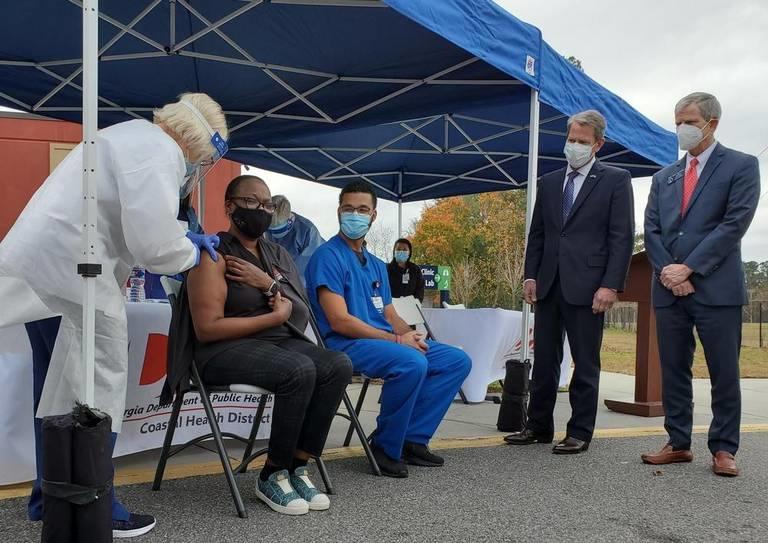
Caption
Tammi Brown, Chatham County Health Department Nurse Manager, was among the first in Georgia to receive the vaccine against COVID-19 on December 15, 2020 as Memorial University Medical Center emergency room nurse David Wilson awaits another dose and Gov. Brian Kemp and State Sen. Ben Watson look on.
Credit: Emily Jones/GPB

